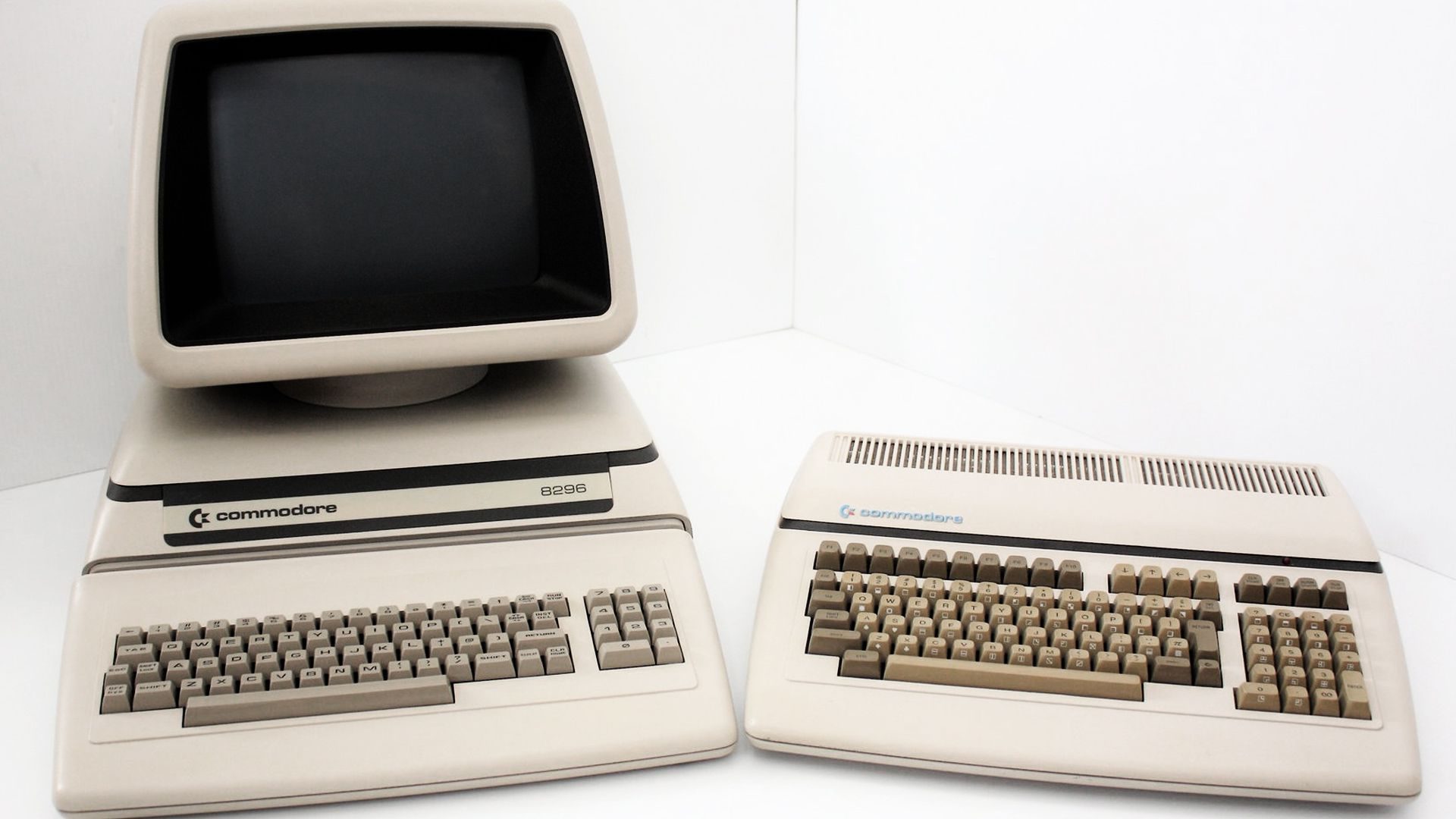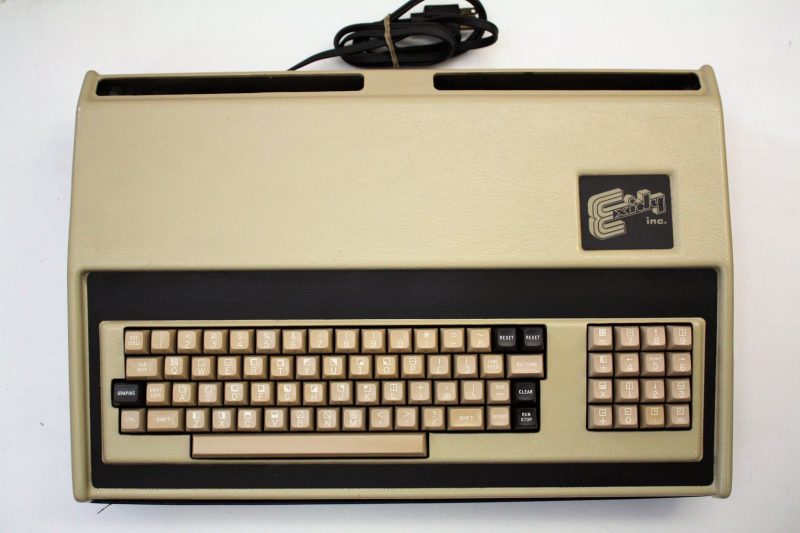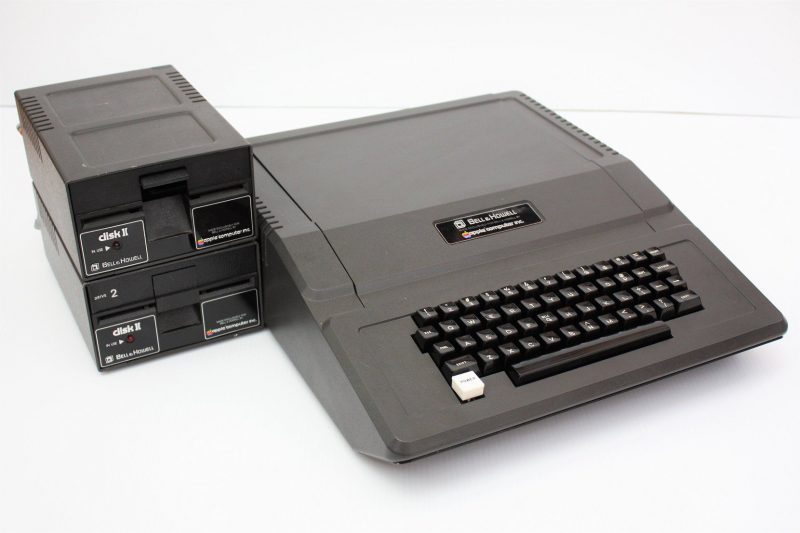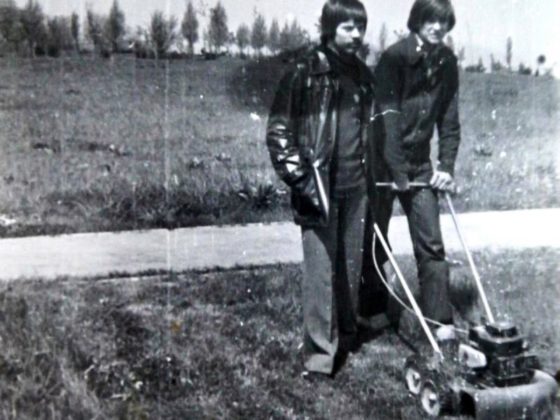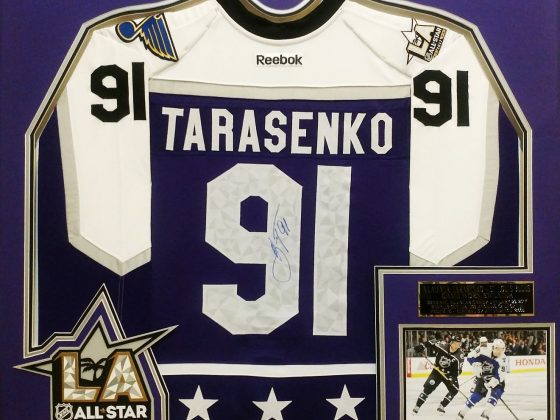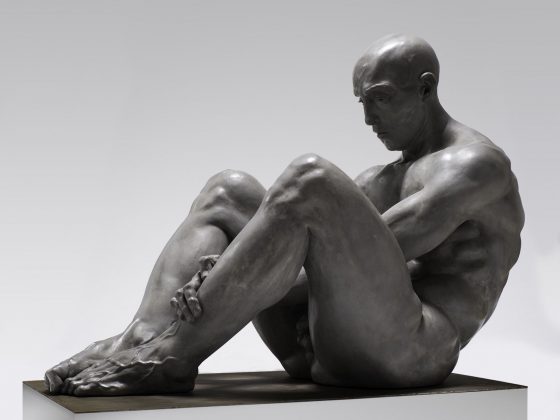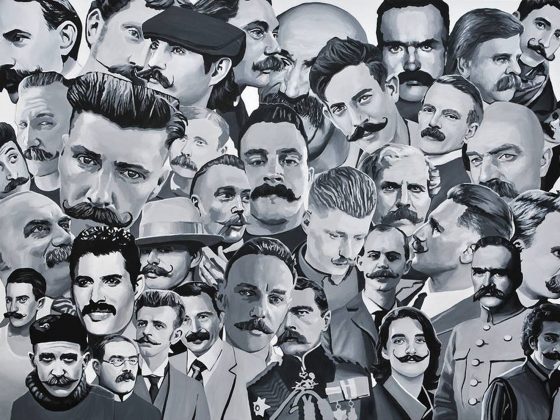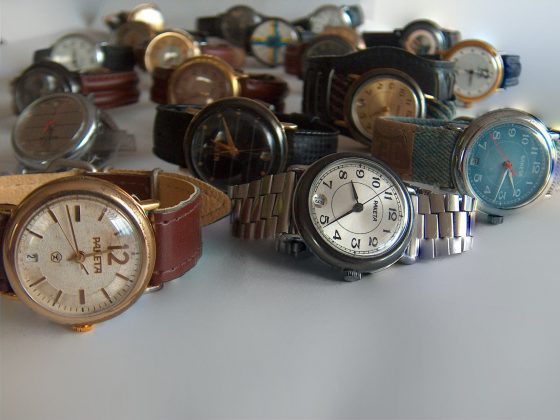Santo: “The fun is in the journey where you find a vintage computer that you may not know about and the research you do allows you to discover things that you didn’t know and assists in broadening your knowledge of the history of computers.”
Santo is a vintage and historical computers collector, fascinated with the hardware and operating systems he never experience. He is also the owner of an impressive vintage computers home gallery, digitized and made publicly available via his private website and his profile on Ownetic.
Being amazed at his hobby, we asked Santo to tell us more about how he began to amass his collection. What we have received is a story of a true collector’s journey – the nostalgia, the hunt, and the “passion about saving the history of computing”.
Santo, tell us more about yourself
Santo: During the day, I work in the Information Technology field in higher education. My hobby is collecting vintage computers with a specialty in the education field.
When did you get interested in computing? How did your collecting journey begin?
S: I needed two credits to finish high school and most course options were not of interest. I ended up taking a Beginner and an Advanced Computer course to finish. What I learned sparked my interest. In particular, we watched the “Bits and Bytes” series in class that was shown on a local station called TVOntario and I was hooked. At about 15 years old, I had a part-time job after school where I sold, among other things, home computers in a department store. I was fascinated by the technology and what they could do. My first computer purchase was a Commodore 64. Through the IBM personal computer years, I continually upgraded with new parts and built out my own computer over the years.
“I was fascinated by the technology and what they could do. My first computer purchase was a Commodore 64.” – Santo
My journey of collecting started a few years ago when I found out about Commodore 64 emulation on modern computers. It worked well but the keyboard would not map properly and that was frustrating. I decided to look for my original Commodore 64; only to find out that someone threw out the main unit. I purchased a replacement on eBay and I was happy to play a particular old game.
I also found the show “Bits and Bytes” on YouTube and remembered how fascinated I was with the computers on the show that I could never afford as a child. I started to collect the computers on the show and that got me on my way to collecting.
Why computers? Why these old devices attract people to collect them?
S: As with any nostalgia collector, it’s the ability to acquire those things you couldn’t when you were younger. I am not particularly a gamer but I am fascinated with the hardware and operating systems that I never experienced. I also like to collect historical computers and odd ones that maybe didn’t make it to market or failed.
“As with any nostalgia collector, it’s the ability to acquire those things you couldn’t when you were younger.” – Santo
How big is your collection? How many different computers do you have?
S: I don’t actually have an inventory but I have over 100 and many peripherals and add-ons.
How did you build such a valuable, museum-like collection? How to acquire these devices?
S: Acquisitions have occured over many years. I check online auctions, services like Craigslist and Kijiji and a number of other venues on a regular basis to keep up with the values so that I know what something may be worth, even if I don’t acquire it right away. I try to look for reasonably priced items or rare items that don’t come up for sale very often.
Except computers, are you also collecting other devices or equipment?
S: One downside to collecting vintage computers is the space required to house them. Unlike collecting small items like stamps or baseball cards I don’t have the space to collect anything else.
Looking at your collection, we can learn how the technology and computing changed over the past decades. Do you also find it fascinating?
S: Yes. My earliest computers are very different than my later models. One can see the various transitions not only in computers but even in peripherals and features from the hardware to the operating systems and software. The evolution is definitely fascinating in a relatively short period of time.
Do you have any special requirements when looking for computers? Let’s say, you have to choose between two great finds. What is more important to you — computer’s uniqueness, design, its significance in the history of technology, or is there something else?
S: This is not an easy question as it really depends on the circumstances and what is available. Rarity and cost are two major factors. I’d love to have one of everything, if at all possible but I don’t want to miss an opportunity when it arises as some examples are very rare. Knowing the market gives you the edge on what is the better opportunity.
Is it hard to maintain such collection? What kind of challenges vintage computer collectors face?
S: Maintenance includes starting up computers on a regular cycle and making sure they still function. Electronic components do eventually fail and capacitors, if un-monitored will eventually corrode and destroy the equipment (some more so than others). Before starting up any computer be it in a maintenance cycle or a new acquisition, I always do a thorough inspection and clean-up (if new) to make sure there are no issues. I think the biggest challenge is finding replacement parts when they are needed and it will only get harder as time goes on.
If you had to choose one favorite model, which one would it be?
S: I can’t choose. Each computer has unique traits that makes it my favourite model. Some may be because of “firsts” ie. first use of a 3.5” floppy drive, first use of a graphical user interface, other might be for industrial design or uniqueness. Some may be just because they are made in my home country of Canadian or were part of my own personal history. It is a very difficult question to answer.
“Each computer has unique traits that makes it my favourite model”. – Santo
Do you know other vintage computers passionates?
S: There is a large community of vintage computer collectors with organized shows in various regions and in various countries. All are passionate about saving the history of computing and trying to keep these devices alive.
Do you have a wish list? Are you hunting for something specific these days?
S: I have some computers that I keep an eye out for when looking but the fun is in the journey where you find a vintage computer that you may not know about and the research you do allows you to discover things that you didn’t know and assists in broadening your knowledge of the history of computers.



